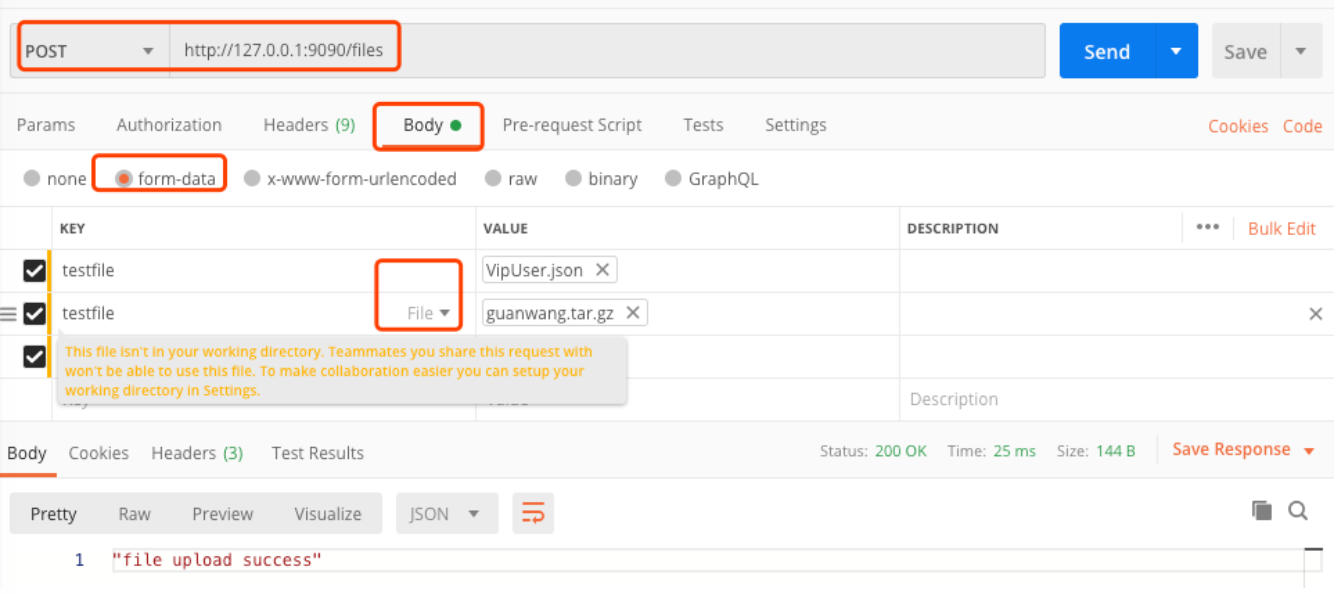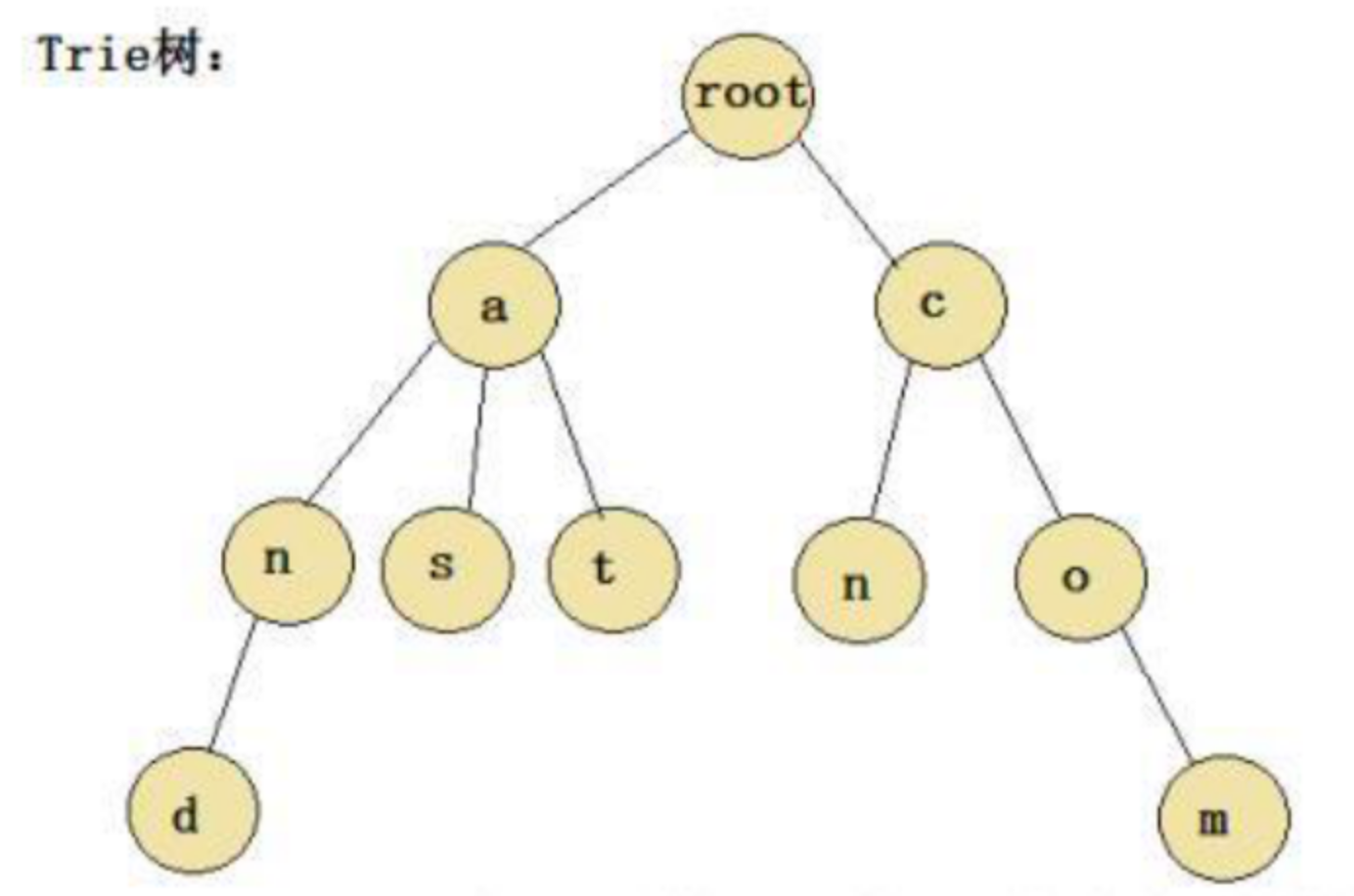Gin Web Framework
brief introduction
- web framework developed based on httprouter: https://github.com/gin-gonic/gin
- Provides Martini style API, but 40 times faster than Martini
- Very lightweight, simple to use
Installation and use of Gin framework
- Install: go get -u github.com/gin-gonic/gin
Basic use
import "github.com/gin-gonic/gin"
func main() {
r := gin.Default()
r.GET("/ping", func(c *gin.Context) {
c.JSON(200, gin.H{
"message": "pong",
})
})
r.Run("0.0.0.0:9090")
}restful API support
- Abstract the designed API into resources and identify them with URI s
- For each resource, use a unified method to operate
- Unified methods: GET,POST, PUT, DELETE
import (
"github.com/gin-gonic/gin"
"net/http"
)
type Result struct {
Message string `json:"message"`
Code int `json:"code"`
}
func handleUserInfo(c *gin.Context) {
var result Result = Result{
Message: "hello",
Code: 0,
}
c.JSON(http.StatusOK,result)
}
func main() {
r := gin.Default()
r.GET("/user/info", handleUserInfo)
r.Run("0.0.0.0:9090")
}queryString design
- Query class: http://127.0.0.1:9090/user/info?username=dadasd&&passwd=1234
- Routing class: http://127.0.0.1:9090/user/info/2020/12
import (
"github.com/gin-gonic/gin"
"net/http"
)
type Result struct {
Message string `json:"message"`
Code int `json:"code"`
}
type UserInfo struct {
Result
UserName string `json:"username"`
Passwd string `json:"passwd"`
}
func handleUserParams(c *gin.Context) {
//Query class interface
username := c.Query("username")
passwd := c.DefaultQuery("passwd","adcdefg")
var result UserInfo = UserInfo{
Result{
Message: "success",
Code: 200,
},
username,
passwd,
}
c.JSON(http.StatusOK,result)
}
func handleUserInfo(c *gin.Context) {
//Routing interface
username := c.Param("username")
passwd := c.Param("passwd")
var result UserInfo = UserInfo{
Result{
Message: "success",
Code: 200,
},
username,
passwd,
}
c.JSON(http.StatusOK,result)
}
func main() {
r := gin.Default()
r.GET("/user/info", handleUserParams)
r.GET("/user/info/:username/:passwd", handleUserInfo)
r.Run("0.0.0.0:9090")
}Gin framework parameter passing
Get form parameters
import (
"github.com/gin-gonic/gin"
"net/http"
)
type Result struct {
Message string `json:"message"`
Code int `json:"code"`
}
type UserInfo struct {
Result
UserName string `json:"username"`
Passwd string `json:"passwd"`
}
func handleUserInfo(c *gin.Context) {
username := c.PostForm("username")
passwd := c.PostForm("passwd")
var result UserInfo = UserInfo{
Result: Result{
Message: "success",
Code: 200,
},
UserName: username,
Passwd: passwd,
}
c.JSON(http.StatusOK,result)
}
func main() {
r := gin.Default()
r.POST("/user/info",handleUserInfo)
r.Run(":9090")
}Single file upload
func handleUpload(c *gin.Context) {
file,err := c.FormFile("testfile")
if err != nil {
fmt.Printf("upload file faild,err:%v\n",err)
return
}
//File upload path
filename := fmt.Sprintf("/Users/wanghui/go/src/oldBoy/day8/tmp/%s",file.Filename)
//file save
err = c.SaveUploadedFile(file,filename)
if err != nil {
fmt.Printf("save file faild,err:%v\n",err)
return
}
//State return
c.JSON(http.StatusOK,"file upload success")
}
func main() {
r := gin.Default()
r.POST("/file/upload",handleUpload)
r.Run(":9090")
}Multi file upload
func multiHandleUpload(c *gin.Context) {
//Multi file upload
form,err := c.MultipartForm()
if err != nil {
fmt.Printf("upload file faild,err:%v\n",err)
return
}
files := form.File["testfile"]
for _,file := range files {
filename := fmt.Sprintf("/Users/wanghui/go/src/oldBoy/day8/tmp/%s",file.Filename)
err = c.SaveUploadedFile(file,filename)
if err != nil {
fmt.Printf("save file faild,err:%v\n",err)
return
}
}
//State return
c.JSON(http.StatusOK,"file upload success")
}
func main() {
r := gin.Default()
r.POST("/file/upload",handleUpload)
r.POST("/files",multiHandleUpload)
r.Run(":9090")
}Upload files through postman
Routing packet
func main() {
r := gin.Default()
v1Group := r.Group("/v1")
v1Group.POST("/user/info",handleUserInfo)
v1Group.POST("/user/info2",handleUserInfo)
r.Run(":9090")
}Parameter binding of gin
- Why use parameter binding
- Through the mechanism of reflection, the parameters such as querystring, form form, json and xml are automatically extracted into struct
- Through the content type in the http protocol, identify whether it is json, xml or form
type UserInfo struct {
UserName string `form:"username" json:"username" binding:"required"`
Passwd string `form:"passwd" json:"passwd" binding:"required"`
Age int `form:"age" json:"age" binding:"required"`
Sex string `form:"sex" json:"sex" binding:"required"`
}
func PostUserInfo(c *gin.Context) {
var UserInfo UserInfo
//Form binding, using pointers
err := c.ShouldBind(&UserInfo)
if err != nil {
return
}
c.JSON(http.StatusOK,UserInfo)
}
func PostUserInfoJson(c *gin.Context) {
var UserInfo UserInfo
//Form binding, using pointers
err := c.ShouldBindJSON(&UserInfo)
if err != nil {
return
}
c.JSON(http.StatusOK,UserInfo)
}
func GetUserInfoJson(c *gin.Context) {
var UserInfo UserInfo
//Form binding, using pointers
err := c.ShouldBindJSON(&UserInfo)
if err != nil {
return
}
c.JSON(http.StatusOK,UserInfo)
}
func main() {
r := gin.Default()
v1Group := r.Group("/v1")
v1Group.POST("/user/infos",PostUserInfo)
v1Group.POST("/user/infojson",PostUserInfoJson)
v1Group.GET("/user/info",GetUserInfoJson)
r.Run(":9090")
}Rendering
- Rendering with gin.Context.JSON method
type UserInfo struct {
UserName string `form:"username" json:"username" binding:"required"`
Passwd string `form:"passwd" json:"passwd" binding:"required"`
}
func GetUserInfoJson(c *gin.Context) {
var userInfo = &UserInfo{
UserName: "zhansan",
Passwd: "aaaa",
}
c.XML(200,userInfo)
}
func main() {
r := gin.Default()
v1Group := r.Group("/v1")
v1Group.GET("/user/info",GetUserInfoJson)
r.Run(":9090")
}HTML template rendering
- templates/post.html
{{ define "index.tmpl" }}
<html><h1>
{{ . }}
</h1>
<p>Using posts/index.tmpl</p>
</html>
{{ end }}- server.go
func HandleHtmml(c *gin.Context) {
c.HTML(200,"index.tmpl","mmmmmmmm")
}
func main() {
r := gin.Default()
r.LoadHTMLGlob("./templates/*")
r.GET("/user/info",HandleHtmml)
r.Run(":9090")
}gin Middleware
- In the request processing process, the gin framework adds the user's own hook function, which is called middleware
- Therefore, middleware can be used to process some public business logic, such as time-consuming statistics, log printing, login verification, etc
func StatCost(c *gin.Context) {
//middleware
start := time.Now()
fmt.Printf("start \n")
c.Next()
lattacy := time.Since(start)
fmt.Printf("cost Time is %dms\n", lattacy/1000/1000)
}
func funcHello(c *gin.Context) {
fmt.Printf("request start\n")
time.Sleep(time.Second * 3)
c.JSON(http.StatusOK, "hello world")
}
func main() {
r := gin.Default()
r.Use(StatCost)
r.GET("/hello", funcHello)
r.Run(":9090")
}Routing principle of gin framework
- The routing part uses: https://github.com/julienschmidt/httprouter
- For routing rules, httprouter will construct a prefix tree
